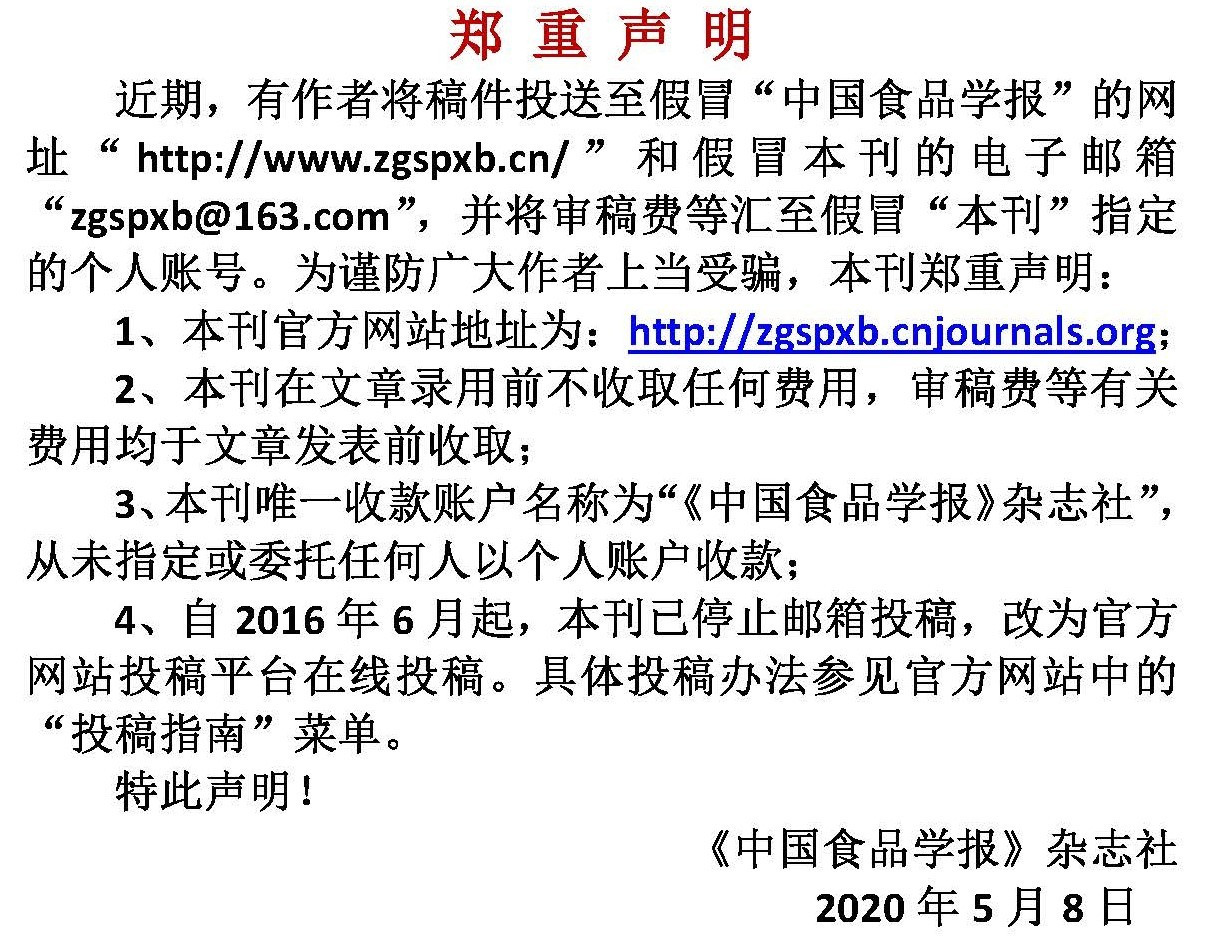转基因稻米的非靶向代谢组变异分析及真菌毒素风险预警
作者:
作者单位:
(浙江工商大学食品与生物工程学院 杭州 310018)
作者简介:
通讯作者:
中图分类号:
基金项目:
浙江省基础公益研究计划项目(LTGN23C200011);浙江省领雁研发攻关计划项目(2023C02026);国家自然科学基金项目(31772100)
Analysis of Non-targeted Metabolomic Variation in Transgenic Rice and Warning of Mycotoxin Risk
Author:
Affiliation:
(School of Food and Bioengineering, Zhejiang Gongshang University, Hangzhou 310018)
Fund Project:
引用本文
赖泽萍,朱军莉,赵艳.转基因稻米的非靶向代谢组变异分析及真菌毒素风险预警[J].中国食品学报,2024,24(6):410-422
复制分享
文章指标
- 点击次数:
- 下载次数:
- HTML阅读次数:
历史
- 收稿日期:2023-06-16
- 最后修改日期:
- 录用日期:
- 在线发布日期: 2024-07-22
- 出版日期:
文章二维码

版权所有 :《中国食品学报》杂志社 京ICP备09084417号-4
地址 :北京市海淀区阜成路北三街8号9层 邮政编码 :100048
电话 :010-65223596 65265375 电子邮箱 :chinaspxb@vip.163.com
技术支持:北京勤云科技发展有限公司
地址 :北京市海淀区阜成路北三街8号9层 邮政编码 :100048
电话 :010-65223596 65265375 电子邮箱 :chinaspxb@vip.163.com
技术支持:北京勤云科技发展有限公司
